NEWS
Great Wisdom Buddhist Institute on Prince Edward Island, Canada, Faces Local Opposition
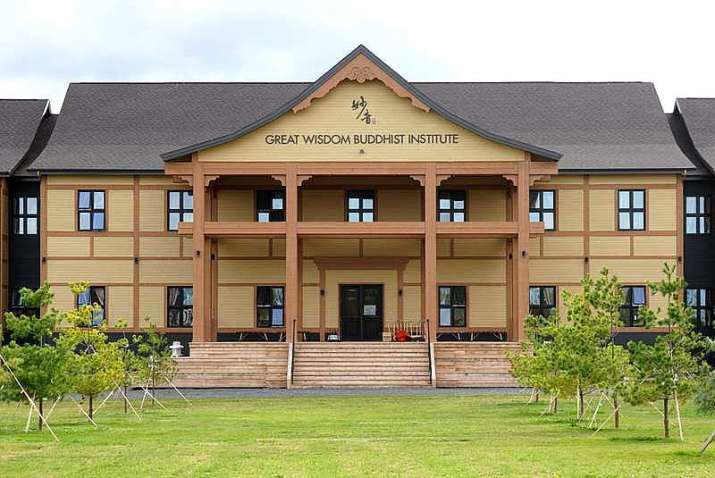 The Great Wisdom Buddhist Institute. From theguardian.pe.ca
The Great Wisdom Buddhist Institute. From theguardian.pe.caThe town council of Three Rivers this week voted seven to three against issuing a permit for the Great Wisdom Buddhist Institute (GWBI) to construct a new residence building. Located in the community of Brudenell in the Canadian province of Prince Edward Island, the Buddhist monastery submitted its development plans in 2018. The residence would have been a two-story building to house up to 176 people.
The decision will not halt the development of the planned monastic complex which, when completed, will have more than 18,500 square meters of buildings housing up to 1,400 Buddhist nuns on 121 hectares of land. However, it does prevent further development at this time.
“We are sad and disappointed with the decision, but we will make a decision once we have a chance to absorb the impact and consider the steps forward,” said Venerable Angeline of the GWBI. “We have made eastern Prince Edward Island our home for over a decade.” (CBC)
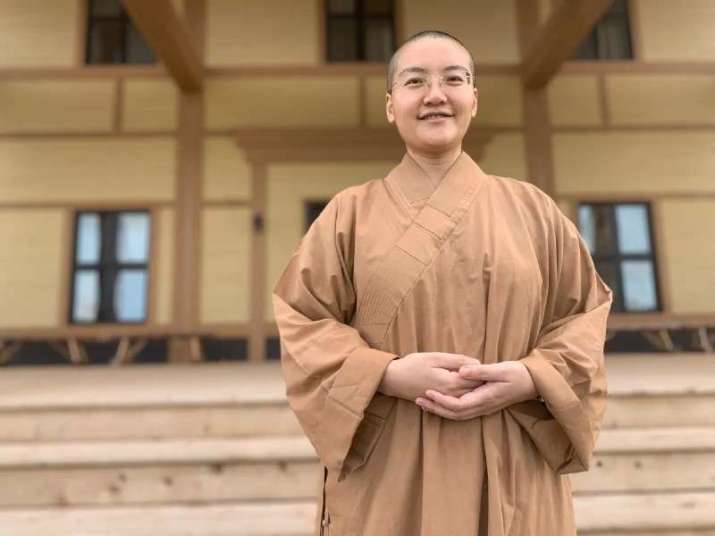 Venerable Angeline. From cbc.ca
Venerable Angeline. From cbc.caCurrently, the GWBI has around 500 nuns living in houses in the surrounding community, which has had a facility nearby since 2012. The institute follows the Chinese Buddhist tradition, with most nuns coming from Taiwan, along with several from Canada, China, Malaysia, New Zealand, Singapore, and the United States.
In 2018, the institute submitted a detailed 10-year, multi-million-dollar project proposal to provincial officials that included teaching facilities, lecture halls, worship areas, dormitories, and recreation facilities, as well as gardens, a greenhouse, walking trails and car parking. The plan was quickly approved by the province after strong public support. The current building permit, which would allow the community to live together, is a first step in this building process.
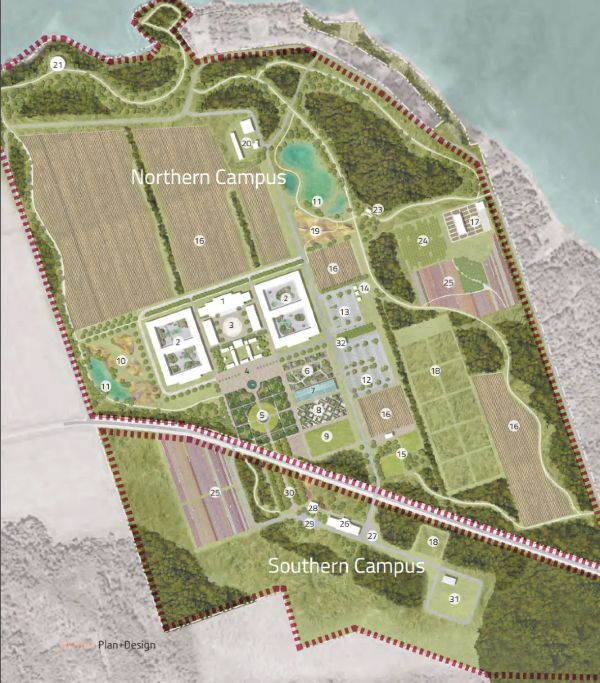
The proposed monastery in its completed form. From cbc.ca
At a council meeting on 14 September, more than 150 community members and monastics gathered. Around 50 sat in the same large room with the council members, while others watched feom separate areas via live-stream and others remained in their vehicles outside. The meeting lasted three hours before the final vote was cast.
One local resident, Joseph Spriet, voiced support for the building permit: “I believe approval will be good for our community to make new friends and be an open community.” (The Guardian)
But others voiced concern with the process. Resident Larry Creed said of the Buddhist community: “We embraced them when they came here. Diversity is marvelous.” Nonetheless, Creed voiced concern for the land the monastery is purchasing and the potential impact on future generations living in the area, “Are they going to be able to afford to live here?” he asked. (The Guardian)
Another resident, Janice MacBeth, suggested that while the GWBI had put forth a detailed plan to the provincial authorities in 2018, she wanted the Three Rivers town council to study the plan independently. “There's no rush for development,” she said. “We are not talking about a small shed in Cardigan.” (The Guardian)
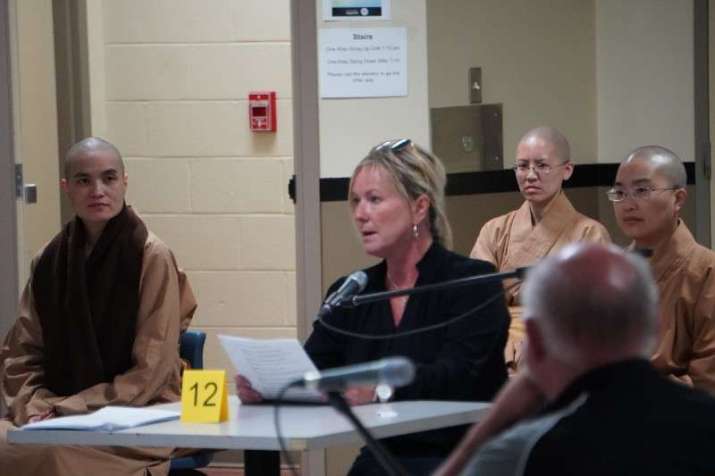 Area resident Janice MacBeth speaks during the council meeting on 14 September. From theguardian.pe.ca
Area resident Janice MacBeth speaks during the council meeting on 14 September. From theguardian.pe.caSpeaking on behalf of the GWBI, Ven. Yvonne Tsai told the council: “It seems that we are causing a lot of trouble. [And] we can see how much you care about the future of our generations.”
After the meeting Ven. Tsai noted that she now had a better understanding of the misgivings many people held regarding the Buddhist development, adding: “We’re just human beings like everyone else. We’re not taking over the Island.” (The Guardian)
Mayor Edward MacAulay said conversations about the permit in recent weeks had been stressful: “It’s bigger than just the permit,” he said. “I think that’s the issue that we’re seeing.” (The Guardian)
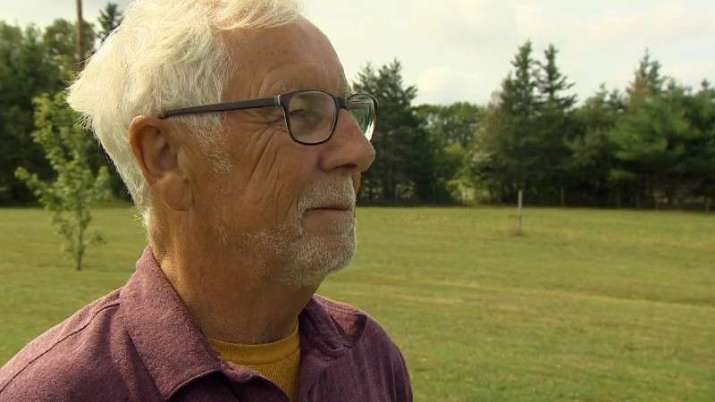 Mayor Edward MacAulay. From cbc.ca
Mayor Edward MacAulay. From cbc.caOne moment of contention came about on 24 August when councilor Gerard Holland said at an initial meeting on the permit that he wanted to know what the Buddhists planned for their development in 50 years: “Whether we want it to look like Brudenell or whether we want it to look like downtown Hong Kong.” (The Guardian)
Holland later publicly apologized for the comment, which some took to be disparaging against the area’s Buddhist community. Holland said his intention was only to compare the currently very rural area to a densely urban one, and that he could have used Toronto or Charlottetown—Prince Edward Island’s capital of some 36,000 people—as examples.
Three Rivers was incorporated in September 2018, bringing together two towns and five rural municipalities. The seven areas together have a combined population of 4,519 according to a 2016 census, down from 4,707 in 2011.
Ven. Angeline noted that the nuns “share the same passion for the land” as those expressing concerns and that "we think it will need more communication to clear things up.” She added that after the decision, many community members had offered words of support to the Buddhists. (CBC)
Mayor MacAulay said that the town would formulate a plan on how to move forward and would work with the Buddhist community as they did so.
See more
UPDATE: Three Rivers council votes against Buddhist residence (The Guardian)
Three Rivers councillor sorry for his 'downtown Hong Kong' comment (The Guardian)
Plan for new Buddhist nun monastery gets good reviews from public (CBC)
Buddhist nuns 'sad and disappointed' after council decision puts new monastery plans in limbo (CBC)
Buddhist Institute proposing monastery for 1,400 nuns in eastern P.E.I. (CBC)
Great Wisdom Buddhist Institute
Related news from Buddhistdoor Global
Canada’s Prince Edward Island Approves 120-hectare Monastery for Buddhist Nuns
Buddhist Monks Embrace the Spirit of Christmas on Prince Edward Island, Canada
Retired Buddhist Teacher to be Honored for Interfaith Work in Manitoba, Canada
Giant Amitabha Buddha Statue Raised in Alberta, Canada
New Calgary Funeral Home Offers Multi-faith Services
7th TLKY Canada Foundation Conference Held at University of British Columbia on 4 November














